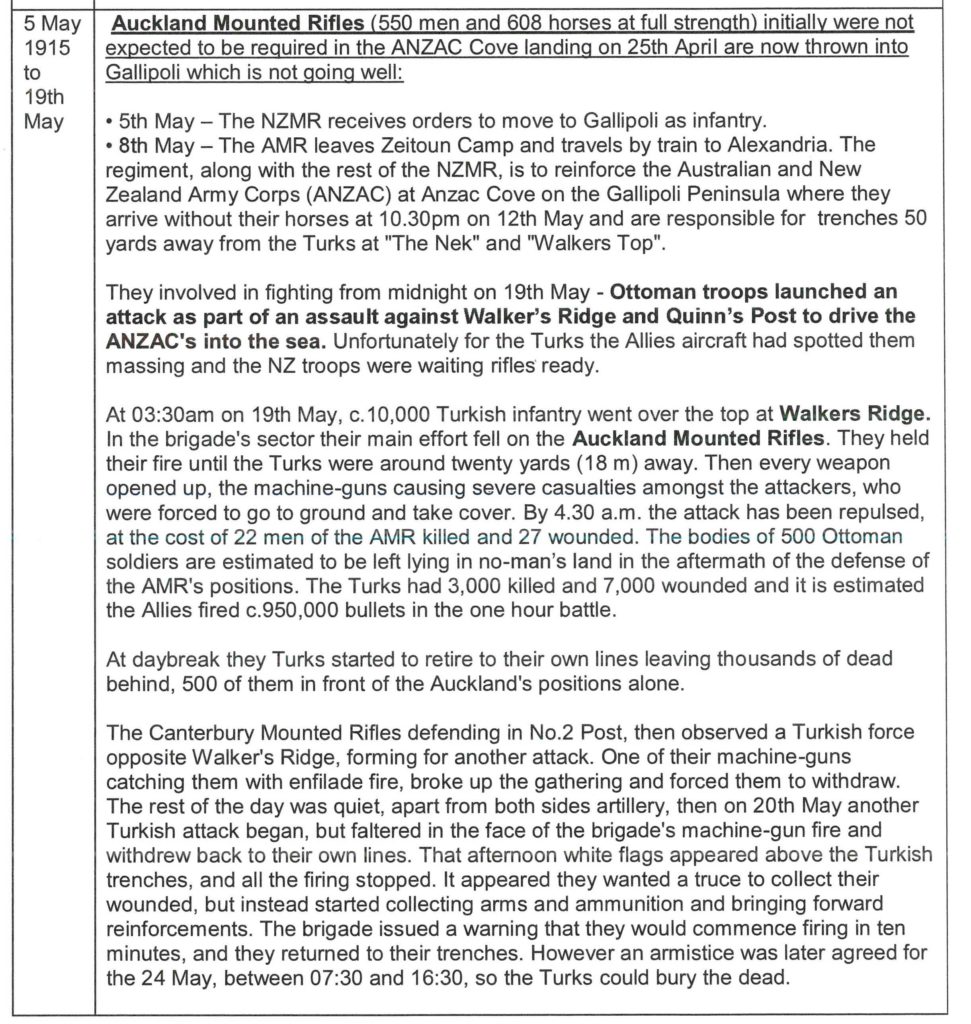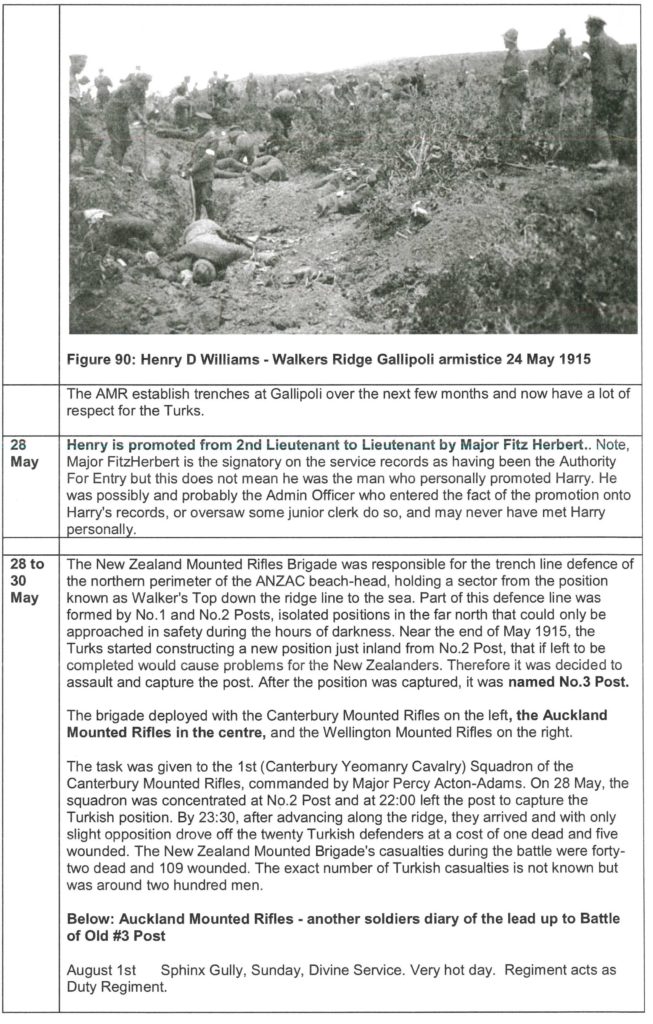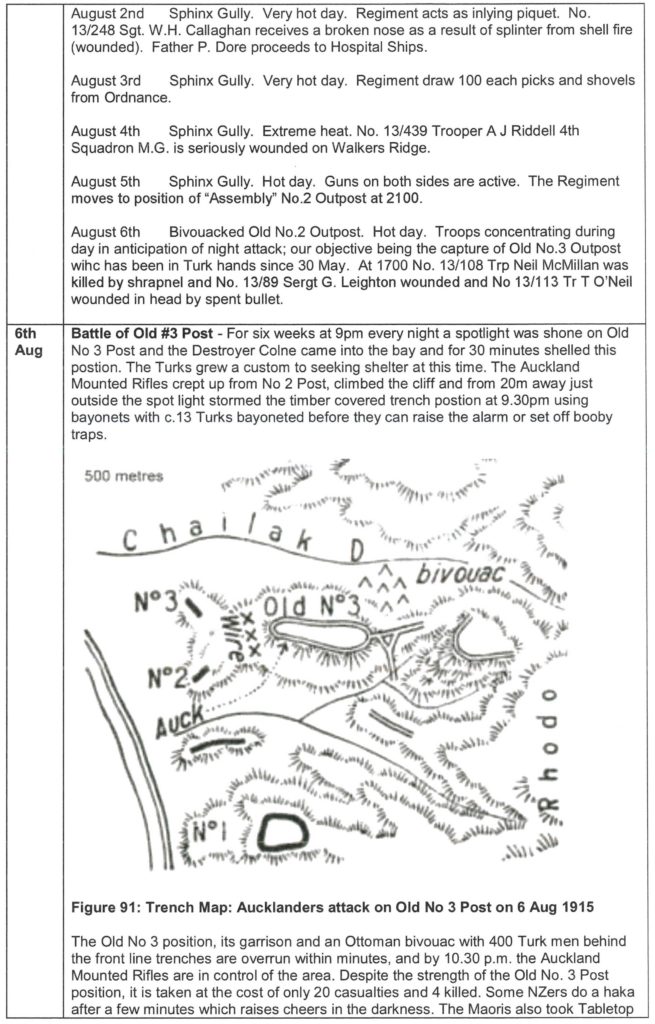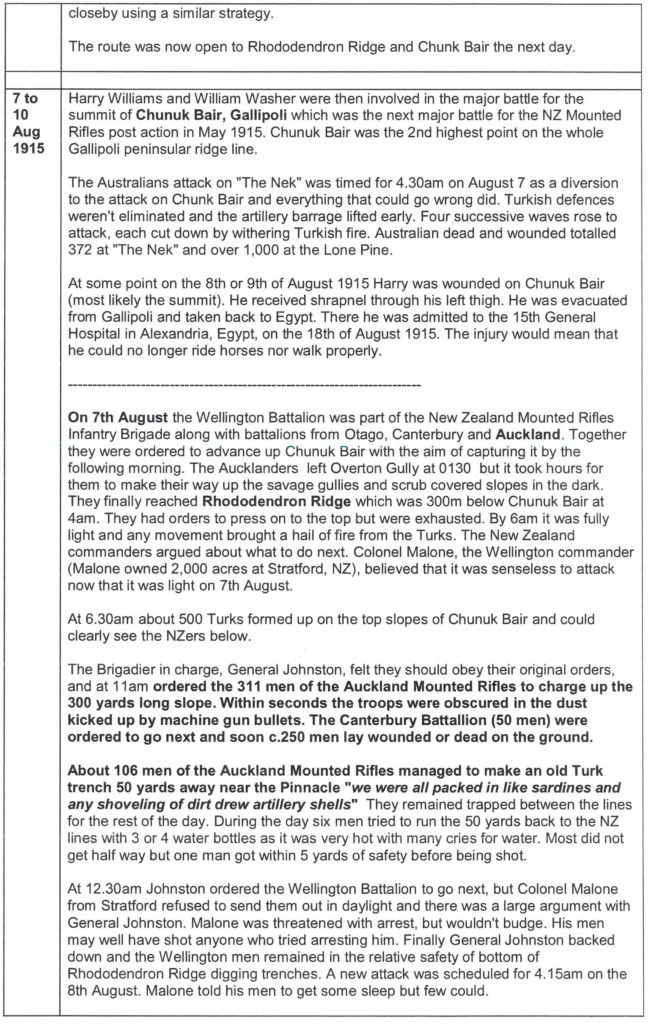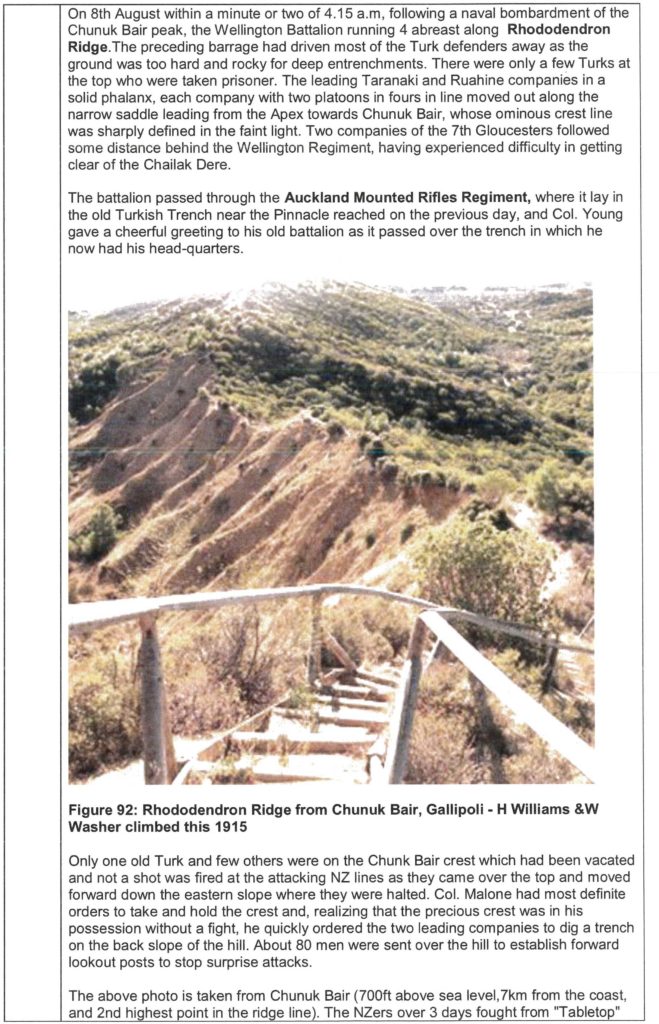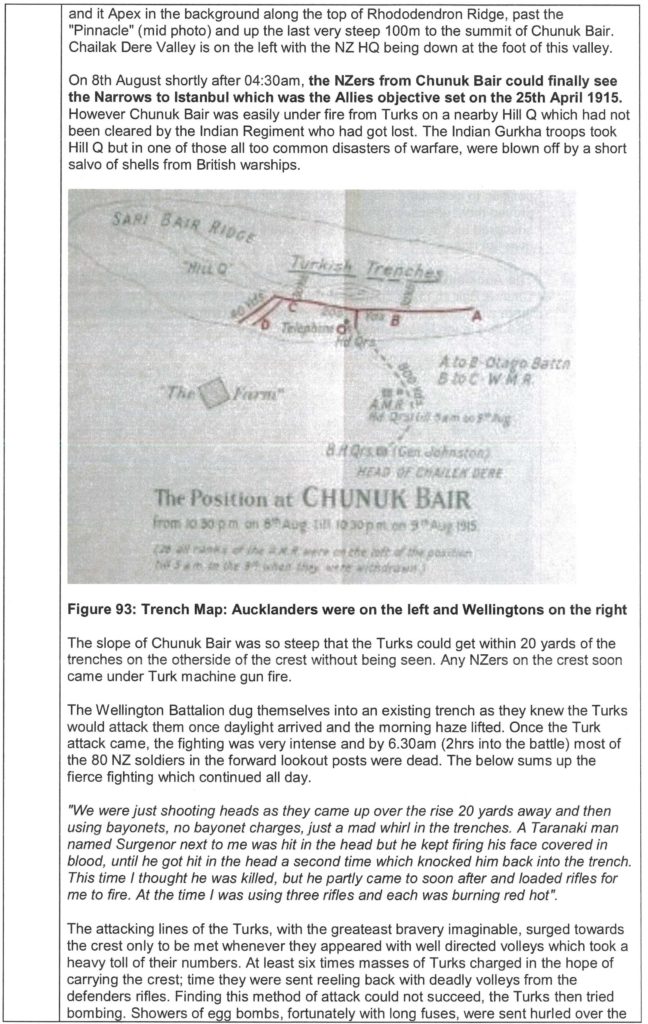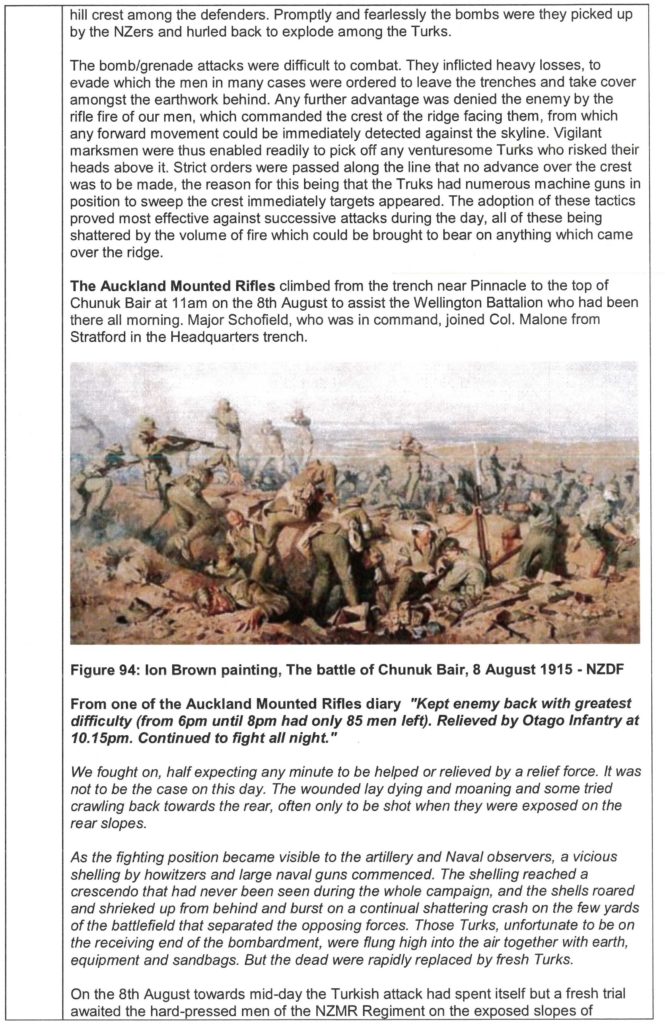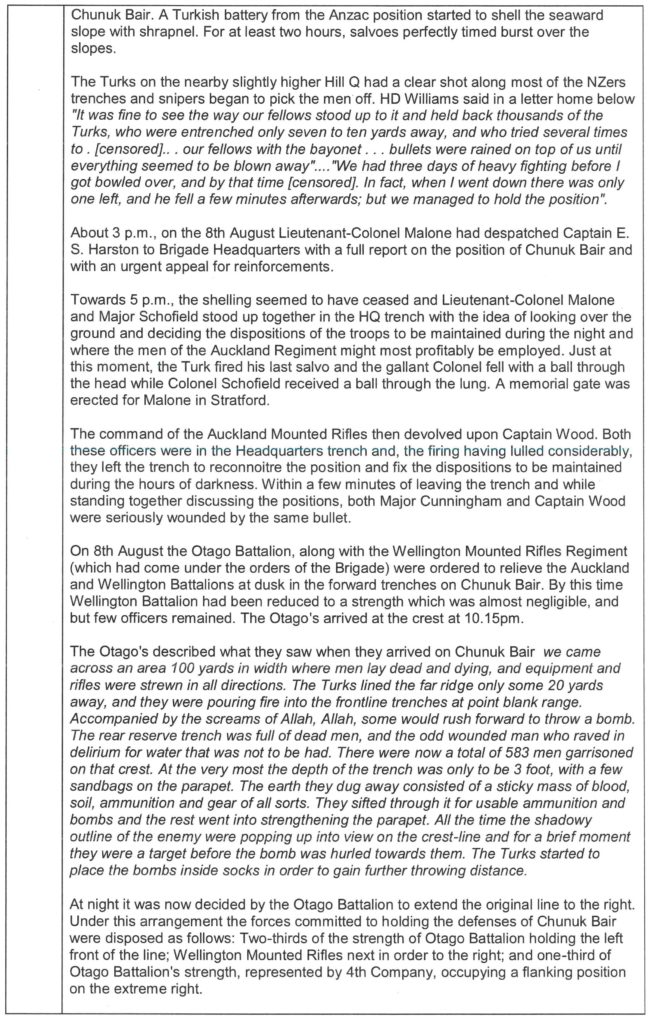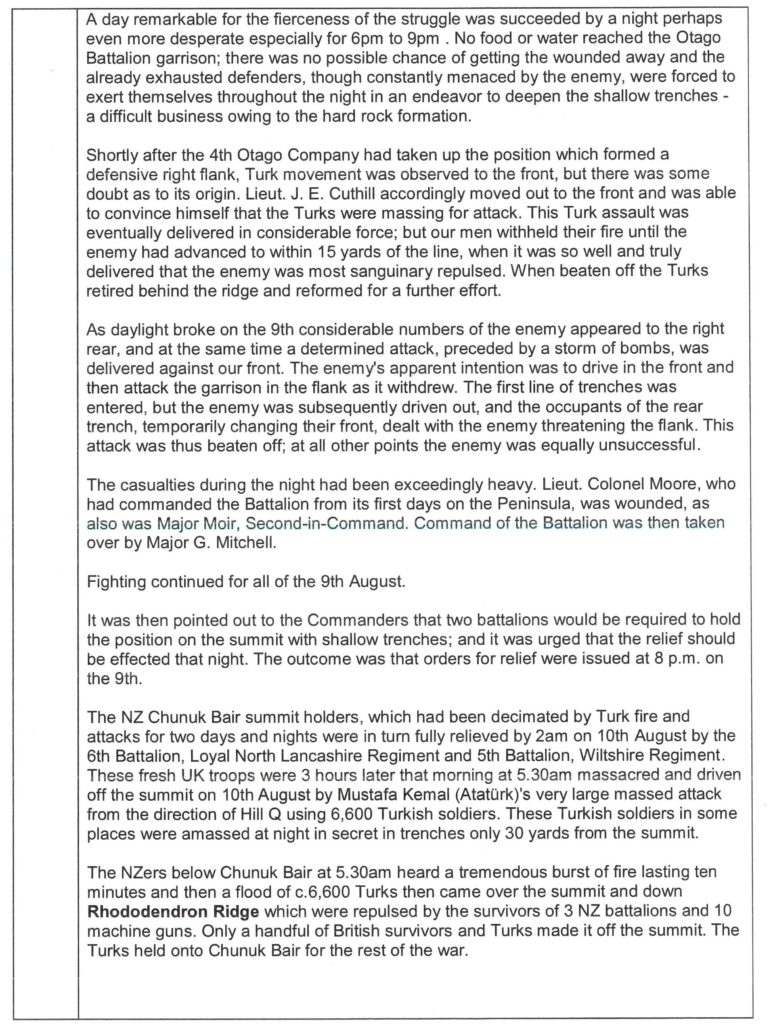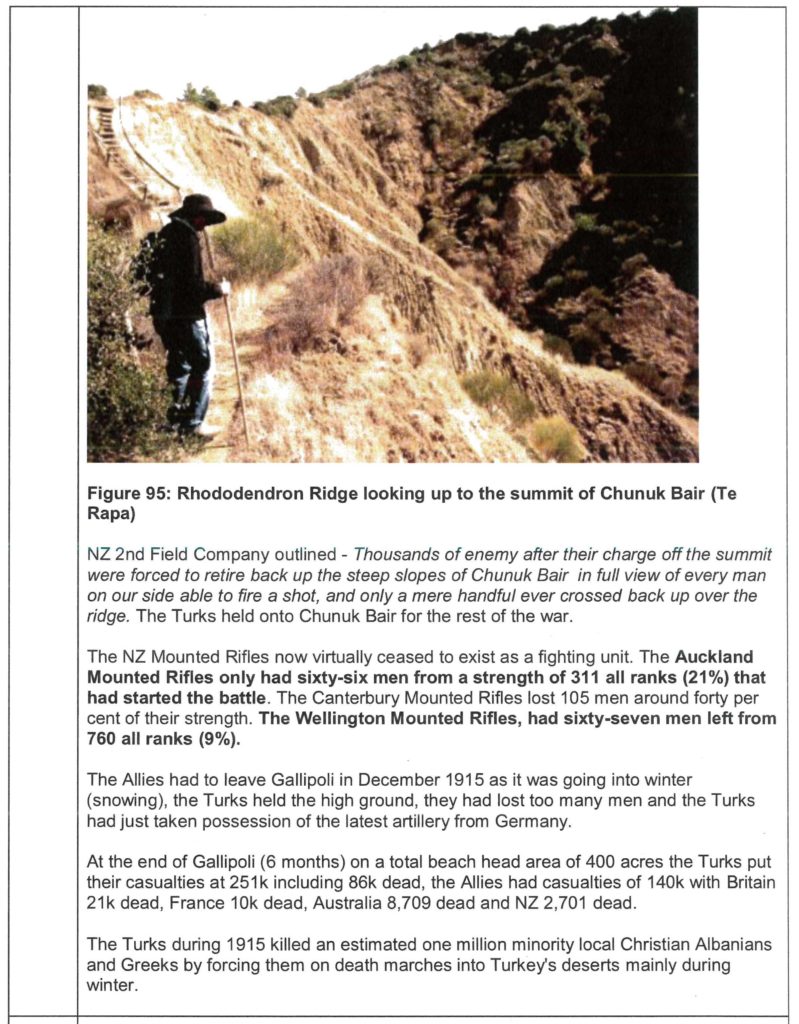Service Details: Harry joined the Army on the 13th of July 1914, just before the entry of New Zealand and Britain into World War One. He was commissioned as a 2nd Lieutenant in the Auckland Mounted Rifles on the 16th of January 1915, and embarked for war service on the 14th of February 1915 (aged 21). He was a member of the 11th Squadron, Auckland Mounted Rifles, as part of the 3rd Reinforcements of the New Zealand Expeditionary Force under the command of Colonel Andrew H. Russell.
They arrived at Zeitoun Camp, Egypt, on the 26th of March 1915 (some 30 days after leaving NZ), where the men were issued with 115 new horses, some of poor quality. On the 2nd of April the Mounted Rifles were called in to quell a riot of ANZAC soldiers in Cairo’s Wazzir brothel district. All leave was stopped as a result.
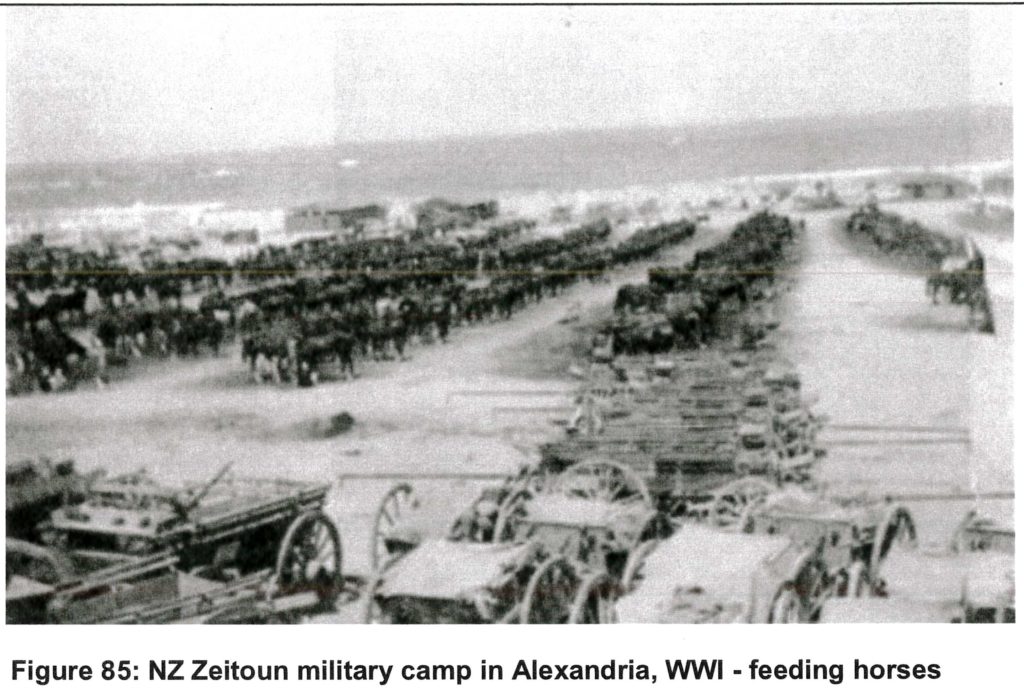
The following day, on the 3rd of April 1915, the Australian and New Zealand Army Corps received orders to prepare for the invasion of Gallipoli. The NZMR (including the Auckland Mounted Rifles) and the two Australian Light Horse brigades are ordered to remain in Egypt to continue training and to defend the Suez Canal against the Turks. Training focused on long-distance treks and inter-brigade manoeuvres.
The next day, the 4th of April, Harry wrote home to his father William. Extracts were published in the Hawera & Normanby Star, on the 24th of May 1915, and in the letter he wrote,
“We do not expect to stay here long, for the main body has already got marching orders; eighteen trains of men and gear moved out last night, and the same number will go away every day now, but it will take ten days or even a fortnight to move them all, for there are nearly three hundred thousand men in Egypt, and we are to be the last to move. The infantry have been promised two days’ sailing, and then three days’ solid fighting, using the boats as their temporary base, so it looks as if we are to attack the Turks in co-operation with the battleships at the Dardanelles. I would like to get in with the first lot if possible, and I am trying hard to do so, but I am afraid there is not much chance.
“We are camped in the desert, and dust and flies are almost unbearable, especially the flies which make for one’s eyes. I have seen Norman and Hedley Arthur, Railton, the Murphys, and Snowy Winks and Tebbutts, besides a great many others, whom you would not know, and they are all right. Cairo is an awful place. I think it must be the most immoral place in the world, and after having seen it once you’ do not want to see it again, for it is simply disgusting, and things which we would look down upon in New Zealand are quite a matter of course here. Even the higher class of people, who would be respected in New Zealand when judged from our standards are quite beyond respect; but they all seem to be the same, high and low alike, and the lowest are ten times worse than dogs. It makes one appreciate little New Zealand. It is no wonder that the men get out of bounds sometimes.
“The country round the Nile is magnificent and there are hundreds of thousands of acres, just like market gardens and of beautiful color. This country is worth from £150 to £200 per acre, but they get three crops a year off it. The locusts are bad this year, and sometimes the sky is covered with a great cloud of them, and they make it look as if there was going to be a thunderstorm. The natives frighten them off the fields with tins.
” We made a record this time with the horses and only lost a total of 1 per cent, of the whole lot. The boat I was in made a world’s record of only half per cent., and those died through poison in the feed.”
The landings at Gallipoli in Turkey began in the early hours of the 25th of April 1915. While the 1,500 men in the Auckland Mounted Rifles were originally not expected to be needed in the landings and subsequent campaign, heavy losses at ANZAC Cove and subsequent battles meant that they would be required to reinforce the infantry. On the 5th of May 1915 the NZMR received orders to move to Gallipoli as infantry, leaving their horses in Egypt.
So on the 8th of May the Auckland Mounted Rifles, including Harry, left Zeitoun Camp and traveled by train to Alexandria to embark on troopships. They arrived at Gallipoli at 10.30pm on the 12th of May (4 days later) and were thrust into the fighting in the early hours of the 19th of May when Ottoman troops launched an assault against Walker’s Ridge and Quinn’s Post.
The main enemy thrust in the New Zealand sector fell on the Auckland Mounted Rifles. They held their fire until the Turks were around twenty yards (18 metres) away. Then every weapon opened up, the machine-guns causing severe casualties amongst the attacking Turks, who were forced to go to ground and take cover. By 4.30 a.m. the attack had been repulsed, at the cost of 22 men killed and 27 more wounded from the Auckland Mounted Rifles. By daybreak they Turks began to retire to their own lines, leaving thousands of dead behind, with around 500 of them lying in no-man’s land in front of the Auckland Mounted Rifles’ positions.
Chunuk Bair
Harry’s next large scale action was during the big push to take the summit of Chunuk Bair, which was the next major battle for the New Zealand Mounted Rifles. Chunuk Bair was the second highest point on the whole Gallipoli peninsular ridge line, and thus a much desired strategic point.
At some point on the 9th of August 1915 Harry was wounded on Chunuk Bair during the attack (nearly 3 months after arriving at Gallipoli, aged 21). He received shrapnel through his left thigh. He was evacuated from Gallipoli and taken back to Egypt. There he was admitted to the 15th General Hospital in Alexandria, Egypt, on the 13th of August 1915. The injury would mean that he could no longer ride horses nor walk properly.
On the 20th of August Harry wrote home from the hospital, and the following was published later in the Hawera & Normanby Star, on the 13th of October 1915. He wrote:
“Just a few lines to let you know that I am still alive and kicking, or, at least, I can kick with one leg. the other one got in the way of a bomb which exploded, with the result that part of my thigh is missing, and the other part is rather too stiff to do much kicking just at present.
“The bomb suffered most though, for it was blown to pieces, so I don’t mind so much. That happened ten or eleven days ago, and since then I have been gradually shifted about by boats and motor ambulances, until, at last, I was dropped here; but they don’t seem to have finished with me yet, for I believe I am to he sent to England by the next hospital ship.
“In one way I am rather pleased at that news, but I want to go back to Gallipoli, and I am afraid that I won’t be wanted there after I come back from England. However, in this game we have to go where we are told to, and that is not always the same place as we want to go to.
“We had three days of heavy fighting before I got bowled over, and by that time [censored]. In fact, when I went down there was only one left, and he fell a few minutes afterwards; but we managed to hold the position until the rest of our regiment came up and they kept it until relieved next morning, when there were only [censored] of the whole regiment left unwounded.
“It was fine to see the way our fellows stood up to it and held back thousands of the Turks, who were entrenched only seven to ten yards away, and who tried several times to . . . our fellows with the bayonet . . . bullets were rained on top of us until everything seemed to be blown away.
“But we had been fighting for three days and had won a good many miles of country at a great cost, so we could not afford to give way then, and eventually the hill was won, although our chaps were not in at the last.”
The letter was a great relief to the family, who had previously been advised he was missing in action, presumed dead.
The roll of wounded (page 259) reports Henry (13/759) as wounded 8 Aug 1915.
See also HD Williams Memoires pages 19-23
